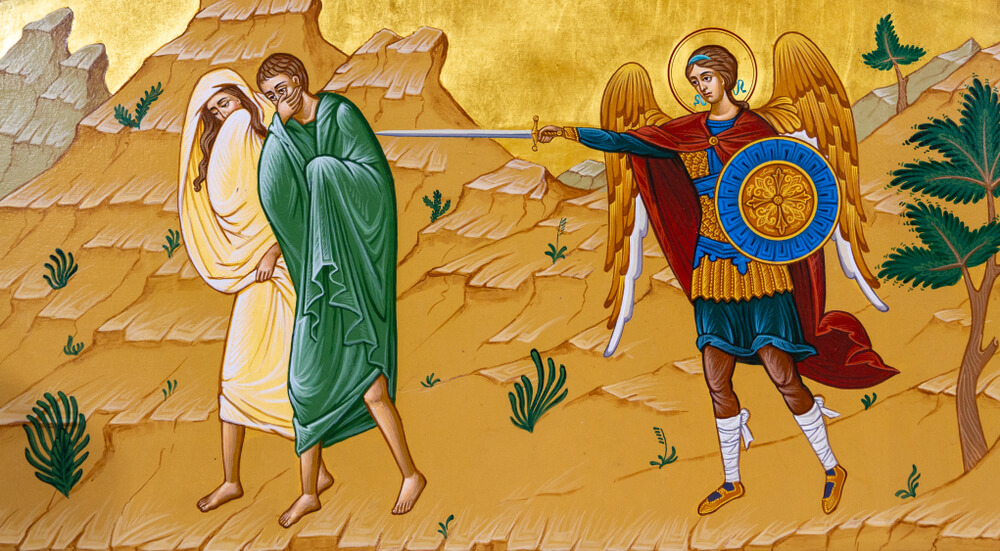Several popes, including Pope St. John Paul II, taught that evolutionary theory has solid scientific grounding, so Catholics can believe in evolution. But for both Catholics and non-Catholics, it can be hard to wrap our minds around how the scientific theory of evolution and the theological doctrine of original sin can be compatible. How can it be possible that humans are an evolved species, but that our human nature can be changed by sin?
That’s a question that Monsignor Stuart Swetland recently tackled on Go Ask Your Father™, when a listener asked him to discuss the issues that arise with evolution and original sin.
Msgr. Swetland responded, “Well, of course, they’re different. They’re two different things. One is a scientific theory to try to explain the development of all of God’s creation. As we look at God’s creation, God has worked in an evolutionary way to bring about the world as we now know it. That’s a scientific theory to explain how we got from the Big Bang, if you will, to today.”
“The doctrine of original sin has to do with man’s rebellion,” he continued. “The human person’s rebellion against God and the things of God.”
One can believe in the scientific premise that all species have evolved over the course of millennia, according to God’s plan for his creation. And you can also believe that humans are a unique species within that evolutionary history. As Catholics, we don’t have to be either/or. We can be both/and.
Msgr. Swetland explained, “We know that God is intimately involved in the creation of each and every human person, and that the human person is unique in God’s creation, in the sense of being created in his image and likeness. Meaning that we have the capacity for relationship with God in a different way than any other species.”
“God created humans, however he brought that about,” he affirmed. “My personal opinion is that he used an evolutionary methodology to bring about human creation as well, at least in its physical sense. But at that moment that humanoids were promoted, if you will, to human, that’s the beginning of a new relationship, a new species, and a new capacity for relationship with God.”
And that new capacity for relationship with God involved a different kind of freedom than any other species had been given before.
“That original human community, however we understand that to be, misused their new gift of freedom and choice to rebel against God and the things of God,” Msgr. Swetland said. “In doing so, that affected the very human nature which had been gifted them by God. And all of us, since we are descendants of that original human community we receive a human nature that is affected by that original rebellion.”
So while evolution and original sin may seem incompatible, it is perfectly reasonable to believe that there would be a scientific explanation for the physical aspect of humanity, and another explanation for the metaphysical aspects of humanity.
God has given humans the gift of reason and a personal relationship with him, unlike any other species in creation. But the way we used that reason and relationship affects the human nature that he gave us.
“Sin and rebellion is unreasonable,” said Msgr. Swetland. “And when we’re unreasonable, we gum up God’s eternal plan, because we’re going against it. But, thanks be to God, God’s grace can come in, and heal us, and restore us if we let him.”
Listen to the full conversation below, and tune-in to Go Ask Your Father weekdays at noon Central on Relevant Radio® and the Relevant Radio App.
Podcast: Play in new window | Download
Subscribe: RSS


